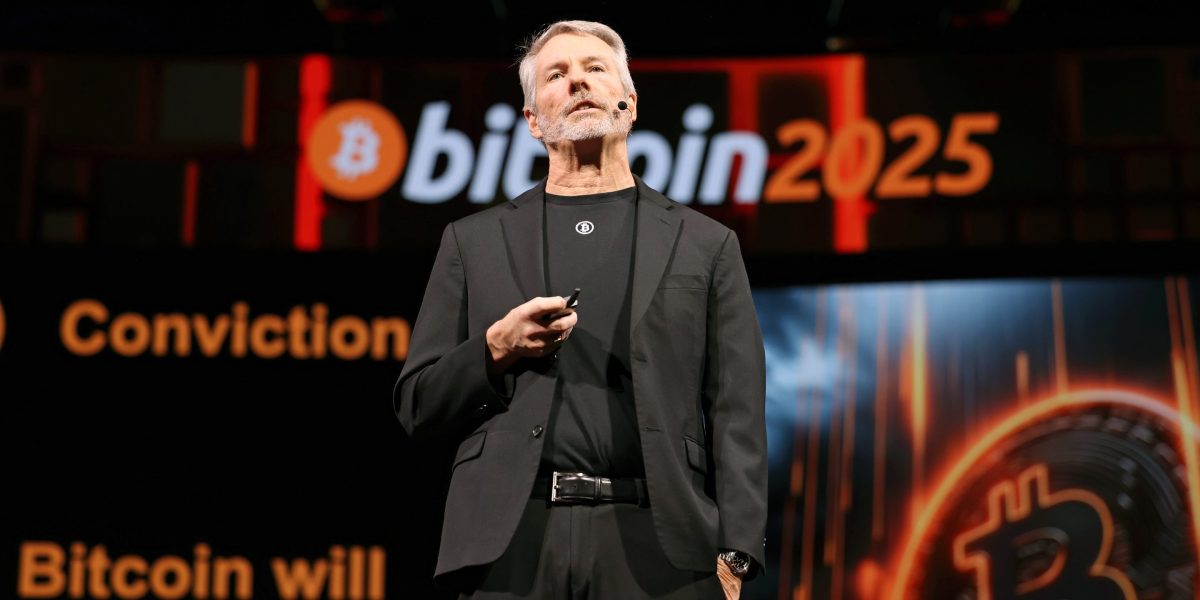Barry Lam’s Fewer Rules, Better People: The Case for Discretion raises a number of interesting arguments, and I think he makes a compelling argument for expanding the role of discretion. Early in the book, Lam suggests his argument would seem unappealing to libertarians, on the grounds that to the libertarian, “Top-down authority in general is suspicious, so more top-down authority given to bureaucrats is an evil.” But I think his argument can be framed in a way that would be far more appealing to libertarians, particularly those of the Hayekian variety.
What is of great concern to a Hayekian liberal or libertarian isn’t just top-down authority per se – it’s centralized, concentrated authority that attempts to make an entire society operate by a one-size-fits-all plan. Lam’s argument that on-the-street level bureaucrats ought to have more discretion to decide whether or how a particular rule applies to particular circumstances would make authority less top-down and centralized – the locus of decision-making becomes far more dispersed than otherwise. This dispersion of decision-making authority, in a way that allows decisions to be made according to particular circumstances of time and place, is actually very congenial to a Hayekian libertarian. In the same way, Lam’s argument that discretion is necessary to make the best use of dispersed information is a textbook Hayekian insight – when Lam speak of discretion holding the advantage of “thousands of individuals making thousands of decisions based on the thousands of micro-situations they encounter,” he’s describing an idea that could easily have come straight from Hayek’s The Use of Knowledge in Society.
Lam’s argument also neatly accommodates the wisdom found in the idea of Chesterton’s Fence. Some people naively oversimply Chesterton’s Fence as the idea that the existence of a rule is proof positive that a rule is justified or valuable. But this was not Chesterton’s point. He said that a mere lack of understanding regarding the point served by a rule (or tradition, or fence) is not itself evidence that the rule (or tradition, or fence) is without value and should be discarded. As Chesterton put it,
There exists in such a case a certain institution or law; let us say, for the sake of simplicity, a fence or gate erected across a road. The more modern type of reformer goes gaily up to it and says, “I don’t see the use of this; let us clear it away.” To which the more intelligent type of reformer will do well to answer: “If you don’t see the use of it, I certainly won’t let you clear it away. Go away and think. Then, when you can come back and tell me that you do see the use of it, I may allow you to destroy it.”
Chesterton is saying that we must first understand the reason the fence was put up, and only then does it make sense to talk about taking it down. In the same way, Lam frequently talks about the reason behind the rules. Lam wants people to think about the purpose the rule was meant to serve, and once they understand that purpose, to think about how it best applies to the situation at hand. Understanding this allows us to recognize when applying the rule as written fails to serve that function, or actively works against it. Those who are merely trained to follow a rule because it’s a rule can often end up sabotaging the very purpose for which the rule exists in the first place – and never realize that’s what they are doing.
Lam’s argument that the by-the-book bureaucrat is every bit the threat to freedom and human flourishing and liberty as a tyrant resonated with me. Douglas Adams imagined what an entire alien species of by-the-book bureaucrats would be like. He described that species, the Vogons, in the following way:
They are one of the most unpleasant races in the Galaxy—not actually evil, but bad-tempered, officious and callous. They wouldn’t even lift a finger to save their own grandmothers from the Ravenous Bugblatter Beast of Traal without orders signed in triplicate, sent in, sent back, queried, lost, found, subjected to public inquiry, queried, lost again, and finally buried in soft peat for three months and recycled as firelighters.
A nonfiction description of what it’s like to live under the rule of the by-the-book bureaucrat was brilliantly written up by Scott Alexander, describing his experience attempting to carry out a very basic medical study under the supervision of an Institutional Review Board. While it was no doubt a terribly frustrating experience to go through, Scott Alexander manages to describe it with the humor of a Dave Barry essay (high praise, from my perspective). It’s well worth a read, if you have the time.
I’ll just briefly describe one of the hurdles he faced. Apparently, for Alexander’s study, patients would sign their forms with pencil, but according to the IRB forms needed to be signed with pens. Alexander explained to the IRB that this was because patients at a mental hospital weren’t allowed to use pens because maybe they’ll doing something mentally unstable like stab themselves in the eyes. (Apparently according to The Rules™, it’s okay to risk someone stabbing themselves in the eye with a pencil but not a pen.) And the response from the IRB was that even though patients were indeed not allowed to handle pens, and they would continue to not be allowed to use pens and were only allowed to use pencils, this was not a good reason to allow them to sign forms with pencils and the patients must sign the forms using pens. Don’t blame us, we’re just Following The Rules™!
Another important point I think Lam gets right is how legalism (and Legalism) can both lead to the moral and mental stupefaction of both enforcers and the obedient. One of my favorite ideas put forth by the late James C. Scott is what he called anarchist calisthenics – the purposeful cultivation of a rule-breaking spirit in cases where following the rules makes no sense. He describes this idea to a hypothetical German listener in the following way:
You know, you and especially your grandparents could have used more of a spirit of lawbreaking. One day you will be called on to break a big law in the name of justice and rationality. Everything will depend on it. You have to be ready. How are you going to prepare for that day when it really matters? You have to stay ‘in shape’ so that when the big day comes you will be ready. What you need is anarchist calisthenics. Every day or so break some trivial law that makes no sense, even if it’s only jaywalking. Use your own head to judge whether a law is just or reasonable. That way, you’ll keep trim—and when the big day comes, you’ll be ready.
In the same essay, Scott describes an unfolding idea in favor of improving traffic coordination and efficiency by removing traffic lights. He cites the case of a traffic engineer in the Netherlands named Hans Monderman, who removed “the busiest traffic-light intersection in Drachten, handling 22,000 cars a day.” This led to the following result:
In the two years following the removal of the traffic light, the number of accidents plummeted to only two, compared with thirty-six crashes in the four years prior to the redesign. Traffic moves more briskly through the rotary, since all drivers know they must be alert and use their common sense, while backups and the road rage associated with them have virtually disappeared. Monderman likened it to skaters on a crowded ice rink, who manage successfully to tailor their movements to those of the other skaters.
Scott argues that this system worked better precisely because it required drivers to be attentive to their circumstances and engage with what they were doing relative to others, in a way that drivers simply never engage when they passively allow their movements to be dictated by lights and signals:
Red-light removal can, I believe, be seen as a modest training exercise in responsible driving and civic courtesy. Monderman was not against traffic lights in principle; he simply did not find any in Drachten that were truly useful in terms of safety, improving traffic flow, and lessening pollution. The traffic circle seems dangerous—and that is the point. He argued that when drivers are made more wary, they behave more carefully, and the statistics on “post–traffic light” accidents bear him out…
The shared-space concept of traffic management relies on the intelligence, good sense, and attentive observation of drivers, bicyclists, and pedestrians. At the same time, it may actually expand, in its small way, the capacity of drivers, cyclists, and pedestrians to negotiate traffic without being treated like automata by thickets of signs (Germany alone has a repertoire of 648 distinct traffic symbols, which accumulate as one approaches a town) and signals.
Lam argues that embracing the use of discretion, in a similar way, forces us to relate to people as people, to think about what we are doing and why and how it impacts others, and to consider the full point and purpose of why things ought to be done in a particular way. Yes, sometimes the attempt will fail, maybe even fail badly – but it’s important that such attempts are still made. A world filled with people who never even try to make this effort is a worse world, both in character and in consequences. Humanity would not be improved by becoming more like Vogons.
I also think Lam is right that there is something self-defeating in trying to keep discretion at bay by making rules increasingly precise. Lam is a philosopher, not an economist (not that there’s anything wrong with that!), but he makes an argument that can be put in terms of diminishing and negative marginal returns.
Recall the “guidance value of law” that Lam cites. The guidance value of a law is how clearly helps people understand what kind of behavior is within bounds, and what kind of behavior crosses the line. If a law is too vague, it has poor guidance value. Making the law more precise increases the guidance value of the law – but only to a point. As rules become more detailed, you get less bang for your buck in guidance value. A rulebook that’s twice as long and detailed may provide additional clarity, but it won’t provide twice as much clarity. But, the first law of bureaudynamics also pushes laws and rules to continue to get more complex and more detailed – and that moves the guidance value of the rules into negative marginal returns. A rulebook that’s a thousand times longer doesn’t merely fail to provide a thousand times the guidance value – it will actually provide worse guidance value than a shorter, less precise rulebook, because it becomes too lengthy and cumbersome to understand.
So overall, I think Lam is really on to something important and makes a number of good points. Still, I do find places where his arguments have room for pushback, as well as places where there are counterpoints that need to be considered. I’ll review some of those in my next post.

























